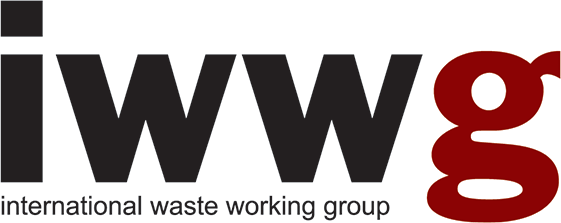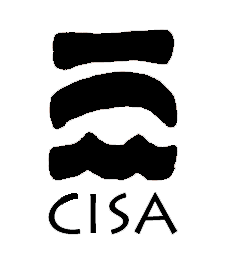WASTE MANAGEMENT IN POST-SOVIET COUNTRIES: HOW FAR FROM THE EU?
- Hanna Skryhan - Department of Occupational Health and Human Safety, Belarusian-Russian University, Belarus,
- Irina Shilova - Department of Occupational Health and Human Safety, Belarusian-Russian University, Belarus,
- Olga Khandogina - Department of Environmental Engineering & Management, O. M. Beketov National University of Urban Economy, Ukraine,
- Kateryna Abashyna - Department of Environmental Engineering & Management, O. M. Beketov National University of Urban Economy, Ukraine,
- Olena Chernikova - Department of Environmental Engineering & Management, O. M. Beketov National University of Urban Economy, Ukraine,
- Available online in Detritus - Volume 03 - September 2018
- Pages 193-203
Released under CC BY-NC-ND
Copyright: © 2018 Cisa Publisher
Abstract
After the collapse of the Soviet system, every new independent state selected its own way of development, own goals and speed of transformation. Dramatic changes were linked not only to the political and economic sphere, but also to environmental governance as a whole and waste management in particular. 25 years later the authors looked at 6 post-soviet countries and analysed the situation in the sector of municipal solid waste management by comparing this with EU member states (some of them have a socialistic past). We used BiPRO approach (BiPRO, 2012) and looked for answers related to the question: how far developed is the current state of waste management in post-soviet countries compared to EU members? Which factors define the potential efficiency of waste management system and its full conformity with the situation in “old” EU member states? The overall scores of 6 post-soviet countries range from 2 (Georgia) to 11 (Belarus). The common reasons for these low scores in all mentioned countries are weak waste management policies, and landfilling as a main way of waste disposal, the lack of economic instruments for stimulating reducing of waste generation and recycling, as well as underdeveloped infrastructure for waste treatment facilities. Specific problems for post-soviet countries are, for example, the high share of landfilled biodegradable waste, incomplete coverage of waste collection systems, the lack of forecasting of waste quantities and planning of waste management, preserved obsolete soviet approach to tariff policy, statistical accounting and administrative procedures in the sector of waste management. The improvement of waste management systems should aim at the legislative ban on the disposal of municipal solid waste at landfills, the re-establishment of a separate waste collection system (disestablished after USSR collapse), the establishment of economic and financial mechanisms supporting the waste processing sector and stimulating the population to reduce waste generation.Keywords
Editorial History
- Received: 25 Jan 2018
- Revised: 09 May 2018
- Accepted: 20 Jun 2018
- Available online: 30 Jun 2018
References
BiPRO (2012): Screening of waste management performance of EU Member States. Report submitted under the EC project “Support to Member States in improving waste management based on assessment of Member States’ performance”. Report prepared for the European Commission, DG ENV, July 2012. – 49 р.
Case Studies in Social-Ecological Research. Edited by Olga Likhacheva, Hanna Skryhan and Anton Shkaruba. Kulik M., Kopyltsova S., Likhacheva O., Rudyk A., Skrigan H., Khandogina O., Shestakova E., Shkaruba A. Pskov, Publishing house of Pskov State University, 2017. 394 p.
Cleandex (2010). Russian market of solid waste. Available at http://www.cleandex.ru/articles/2010/05/28/municipal_waste_recycling_market_in_russia
EC (2011). European Commission. 2011. Evolution of (bio-) waste generation/prevention and (bio-) waste prevention indicators. http://ec.europa.eu/environment/waste/prevention/pdf/SR1008_FinalReport.pdf
Ecoportal (2015). Economic aspects of solid waste management in the Russia. Available at http://ecoportal.su/view_public.php?id=7088.
EEA (2007). The road from landfilling to recycling: common destination, different routes. Copenhagen: European Environmental Agency, 20 pp.
IFC's the World Bank Group (2010). Waste in Russia: trash or valuable resource? SCENARIOS for development of MSW treatment SECTOR. IFC’s, the World Bank Group, 2010, 92 pp.
Klavenieks, K., Blumberga, D. (2017). Common and distinctive in municipal solid waste management in Baltic states. Energy Procedia, 113, 319-326.
LD 99/31/EC. Landfill Directive. The European Directive on the Landfill of Waste from 26 April 1999. Available at: http://eur-lex.europa.eu/legal-content/EN/TXT/?uri=CELEX:31999L0031.
Lysuho & Eroshina (2011). Industrial and consumption waste and their impact on environment: monography. N.A. Lysuho, D.M. Eroshina. Minsk: ISEU, 210 pp.
Malinauskaite, J., Jouhara, H., Czajczynska, D., Stanchev, P., Katsou, E., Rostkowski, P., Thorne, R.J., Colon, J., Ponsa, S., Al-Mansour, F., Anguilano, L., Krzyzynska, R., Lopez, I.C., Vlasopoulos, A., Spencer N. (2017). Municipal solid waste management and waste-to-energy in the context of a circular economy and energy recycling in Europe. Energy 141, 2013-2044.
Makarenko, N., Budak, O. (2017). Waste management in Ukraine: Municipal solid waste landfills and their impact on rural areas. Annals of Agrarian Science 15, 80-87.
MEP Kz (2015). National report “On the state of the environment and use of natural resources in 2011-2014”. Available at: http://ecodoklad.kz/otxody.
MHU RB 78 (2014). Concept on management of solid municipal waste and secondary raw materials, approved by the Order of the Ministry of housing utilities of the Republic of Belarus № 78 from 07.07.2014.
MNRE RF 298 (2013) Integrated strategy on municipal solid waste management in Russian Federation, approved by the Order of the Ministry of natural resources and environment of Russian Federation № 298 from 14.08.2013.
MP Kz (2014). Modernization program for solid waste management system for 2014-2050 approved by Resolution of the Government 09.06.2014 № 634. Available at https://greenkaz.org/images/for_news/pdf/npa/programma-modernizacii-tbo.pdf .
MRDCH U (2015). State of the municipal waste management sphere in 2015. Ministry of Regional Development, Construction and Housing and Communal Services of Ukraine. Available at: http://www.minregion.gov.ua/napryamki-diyalnosti/zhkh/terretory/stan-sferi-povodzhennya-z-pobutovimi-vidhodami-v-ukrayini-za-2015-rik/
NBS RM (2016). Report on generation and use of waste (2010-2016). National Bureau of Statistics of the Republic of Moldova. Available at: http://www.statistica.md/cprint.php?l=en&idc=99
NSC RB (2017). Environment Protection in the Republic of Belarus. Statistical yearbook. Minsk, National statistical committee of the Republic of Belarus, 235 pp.
NWMS RM (2013). National Waste Management Strategy of the Republic of Moldova (2013-2027) Available at: http://www.serviciilocale.md/public/files/deseuri/2013_01_24_NATIONAL_WASTE_MANAGEMENT_STRATEGY_2013-27_ENG.pdf
SSS U (2016). Household and similar waste treatment. State Statistics Service of Ukraine. Available at: http://www.ukrstat.gov.ua/
Sycheva & Asadcheva (2013). Waste management sector: current situation, the legal framework, the experience of regions and perspectives / Sycheva, A., Asadcheva, M. Available at http://www.proothody.com/novosti/wastes-article/
WFD 2008/98/EC. Waste Framework Directive of the European Parliament and of the Council from 19 November 2008. Available at: http://eur-lex.europa.eu/legal-content/EN/TXT/?uri=CELEX:32008L0098.
WMP U (2004). Municipal Waste Management Programme approved by the Decree of the Cabinet of Ministers of Ukraine of 04.03.2004 No 265. Available at: http://zakon2.rada.gov.ua/laws/show/265-2004-%D0%BF




